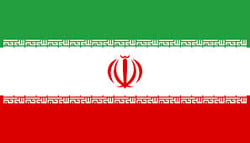 Western drugmakers are looking for opportunities in Iran, a country that is a challenge to do business with given the sanctions and financial constraints imposed by Western governments. But Iran has big plans for its own drug industry, and a domestic company has started commercial production of veterinary drugs at a plant that eventually will make human treatments as well.
Western drugmakers are looking for opportunities in Iran, a country that is a challenge to do business with given the sanctions and financial constraints imposed by Western governments. But Iran has big plans for its own drug industry, and a domestic company has started commercial production of veterinary drugs at a plant that eventually will make human treatments as well.
The FARS News Agency (FNA) in Iran said that officials there have inaugurated the first phase of the Bayer Aflak plant near the western city of Azna in the Lorestan province. It said the facility is now ready for commercial production of veterinary penicillin, syrup and sterile ointment. Oliver Renner, head of global corporate communications and public affairs for Bayer HealthCare, said by phone Monday that the German company has no facilities in Iran and that Bayer Aflak is not related to Bayer HealthCare.
A second phase, which will make human drugs, is about 40% complete, FNA reported. It said that part of the plant will eventually have 12 production lines and will make a variety of drugs including cancer treatments. According to FNA, government officials have said the country expects to produce up to a dozen biologic drugs in the next two to three years.
There were no details about the plant, but the news agency said the facility is the largest pharmaceutical plant in Iran. According to the company's website, Bayer Aflak is one of "two pharmaceutical manufacturing companies" operated by Hayat Gostar Holding. The company said that it started work on the facility in 2009 with an investment of €38.5 million (about $52.4 million) and that it is expected to eventually employ 500 people. It says the Bayer Aflak facility has three separate 12,000-square-meter (129,000-square-feet) production halls and that each of those production halls has 7 manufacturing lines as well as 6,000-square-meter (64,600-square-foot) warehouses. It indicates that the veterinary medicine lines produce 250 products.
While sanctions in place to deter Iran's nuclear ambitions limit much of what Western companies can sell in Iran, pharmaceuticals are among the small number of products allowed for those willing to traverse a complicated, lengthy and risky process. Novartis' ($NVS) Alcon unit acknowledged in 2012 that federal authorities were investigating its sales there. But with the prospect of sanctions easing, drugmakers are looking at the opportunities.
Germany-based Merck KGaA said late last year it was looking for a partner to produce its diabetes drug Glucophage and its high-blood-pressure treatment Concor. France-based Sanofi ($SNY), which licenses some cancer meds in Iran and maintains a staff of 170 there, has also indicated it will expand there in 2014.
- read the FARS News Agency story